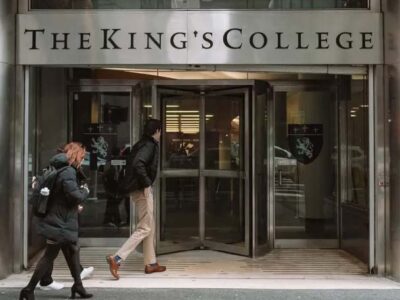When Barack Obama burst onto the national scene after his victory in the Iowa caucuses, many felt that a breath of fresh air was sweeping across the land, one that also gave the Clintons the chills. For other denizens of the Jurassic Park of Democratic contenders, another metaphor seems appropriate: the meteorite that blasted into earth a gazillion years ago, which, not incidentally, wiped out all the dinosaurs. Suddenly, Jesse Jackson, Al Sharpton, and their legions of race hustlers seemed oh-so-70s-or-80s, no longer relevant to the new politics of the 21st century. Young, articulate, handsome, with a resonant speaking voice, this upstart has spawned a bevy of youthful enthusiasts fixed on his every word.
Perhaps the most important question for Obama’s opponents centers on just what he really represents in American politics. What is behind his expansive smile, twinkling eyes, gorgeous family, and John F. Kennedy good looks (without the hair-swoop thing)? What lurks beneath Obama’s repetitive calls for change, besides displacing Grecian Formula Boomers with a face that seems impossible ever to imagine relinquishing a telltale wrinkle of age?
In fact, Barack Obama was presented with a matchless opportunity prior to the election to expound on his concept of change, and especially national unity, when he spoke in Ebenezer Church in Atlanta on Martin Luther King Day. If there were ever a time for him to address important questions and establish himself as a significant new voice in national politics, this was it.
His speech began magnificently, glittering with Biblical metaphors and noble moments in the history of civil rights crusade. “Unity is the great need of the hour,” Obama stated, following King’s memorable line, “Unity is how we shall overcome.” What the young Senator from Illinois stated is “the essential deficit that exists in this country.” This is a moral deficit, an empathy deficit, about “an inability to recognize ourselves in one another; to understand that we are our brother’s keeper … that in the words of Dr. King, we are all tied together in a single garment of destiny.”
So far, this script followed the inspirational lead of Martin Luther King Jr.’s “I Have a Dream” speech. King spoke of the “sacred obligation” passed down to the generations by America’s founding architects of civic morality; the “sunlit path of racial justice” needs to be trodden anew, King declared, lifting our nation to the “solid rock of brotherhood,” until “justice rolls down like waters, and righteousness like a mighty stream.” These metaphors served as a platform for King to launch his cadence of “I have a Dream” lines, beginning with the assumption that his dream “is deeply rooted in the American dream,” and ending with the hope that “all God’s children … will be able to join hands and sing in the words of the old Negro spiritual: Free at last! Free at Last! Thank God Almighty, we are free at last!” Without question, this speech, so Lincolnesque, so Jeffersonian in its themes, will continue to rank among the most stirring expressions about the principles of American civilization, about our national civic morality.
Which is exactly the point, of course. King insisted that by moral principles to which all Americans are committed, those who oppose equal justice for their African-American brothers and sisters should condemn their own behavior. Clearly, his speech had policy implications, and Senator Obama was right to point out King’s views on other hot-button issues of the day, such as the Vietnam War. But Martin Luther King Jr. did not express his views on other issues in this speech, and that is the main reason why it is still read, why it still matters. As divisive as it was, the Vietnam War was a passing issue; civil rights for Americans is not; civil rights cuts to the core of what we are as a people. King knew that, which is why he devoted other speeches to current issues. But not this one. “I Have a Dream” stands alone.
Here is where Mr. Obama made his big mistake. His Martin Luther King Jr. speech began brilliantly, especially with his insistence that “unity is the great need of the hour.” Then things fell apart, disintegrated into a scrap heap of left-wing positions on current political issues, all of which are eminently contestable, and none of which can serve as rallying points for national unity. He decried fat-cat CEOs, “Scooter Libby” justice, rapacious insurance companies and drug companies, and abhorred the “costs of a misguided war,” driven by “a politics of fear that sees the threat of attack as a way to scare up votes instead of a call to come together around a common effort.”
Obama blew it. He began with words that hearkened to principles of justice and unity; then he let the King legacy slip through his fingers by citing views on issues that in the future will be as irrelevant as Jim Crow and Grandfather Clauses are today. King addressed the issues by drawing from the moral foundations of the Republic; Senator Obama enticed his audience with similar appeals, but polluted his ideals by references to ephemeral policy controversies. King addressed current issues by speaking for the ages; Obama, so far at least, teases us with inspiring rhetoric but still seems trapped in his time. Americans have yet to learn what the young Senator from Illinois really stands for.


